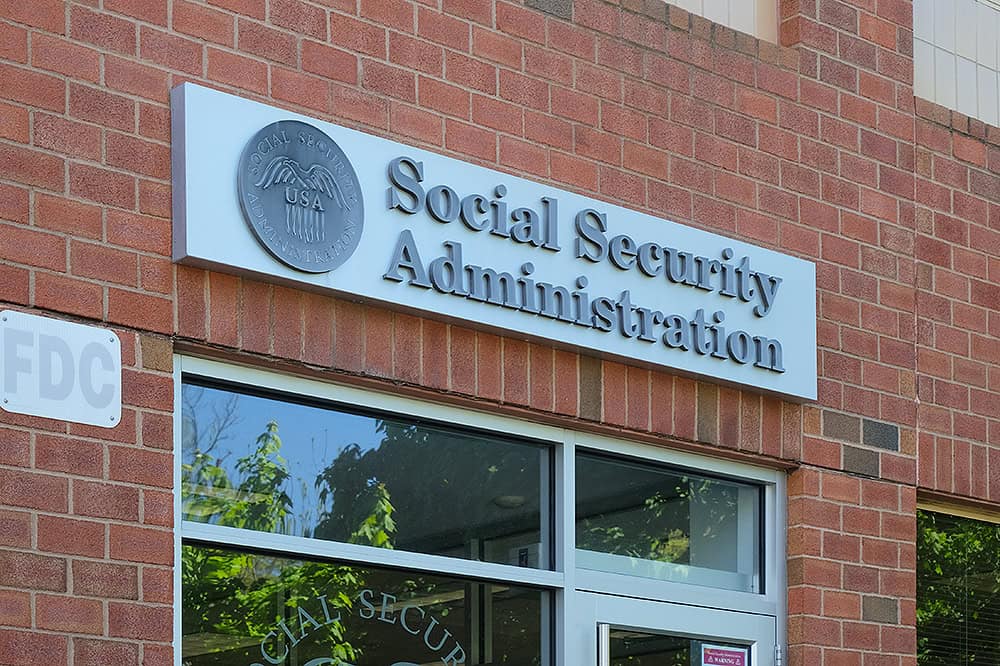New Poll: With Shutdown Deadline Approaching, Concern Rising Among Voters
As National Debt Crosses $33 Trillion, the September Fiscal Confidence Index is 39 (100 is neutral)
NEW YORK (September 27, 2023) — U.S. voters across party lines have deep and growing concerns about a government shutdown, with the deadline just days away. A new Peter G. Peterson Foundation poll reveals that 72% of Americans, up from 69% last month, are concerned that lawmakers won’t reach a budget agreement by the Sept. 30 deadline and there will be a shutdown. That includes 77% of Democrats and 69% of Republicans.
More broadly, as the national debt crossed $33 trillion for the first time last week, voters continue to call on their leaders to take proactive action to secure America’s fiscal future. The U.S. Fiscal Confidence Index for September is 39 (100 is neutral), with 80% of voters saying their concern about the debt has increased, and 83% urging the president and Congress to spend more time addressing the debt.
“Rather than engaging in partisan battles and fiscal brinksmanship, voters want their leaders to work together on real solutions to our national debt,” said Michael A. Peterson, CEO of the Peterson Foundation. “Nobody benefits from a shutdown, and it sends the wrong message to the world about our ability to govern. Lawmakers have the opportunity to avoid self-inflicted economic damage and improve our overall fiscal outlook at the same time, and it’s encouraging to see leaders on both sides supporting a bipartisan fiscal commission to deal with the structural drivers of our debt. Significant majorities of voters support this kind of comprehensive, big-picture approach to improve America’s future outlook.”
The Fiscal Confidence Index measures public opinion about the national debt by asking six questions in three key areas:
- CONCERN: Level of concern and views about the direction of the national debt.
- PRIORITY: How high a priority addressing the debt should be for elected leaders.
- EXPECTATIONS: Expectations about whether the debt situation will get better or worse in the next few years.
The survey results from these three areas are weighted equally and averaged to produce the Fiscal Confidence Index value. The Fiscal Confidence Index, like the Consumer Confidence Index, is indexed on a scale of 0 to 200, with a neutral midpoint of 100. A reading above 100 indicates positive sentiment. A reading below 100 indicates negative sentiment.
Fiscal Confidence Index Key Data Points:
- The September 2023 Fiscal Confidence Index value is 39. (The August value was 38. The July value was 40.)
- The current Fiscal Confidence Index score for CONCERN about the debt is 31, indicating deep concern about the debt. The score for debt as a PRIORITY that leaders must address is 22, indicating that Americans want elected leaders to make addressing long-term debt a high priority. The score for EXPECTATIONS about progress on the debt is 64. The Fiscal Confidence Index is the average of these three sub-category scores.
- For a description of the complete methodology, see the Appendix below.
The Peter G. Peterson Foundation commissioned this poll by the Global Strategy Group and North Star Opinion Research to survey public opinion on the national debt. The online poll included 1,007 registered voters nationwide, surveyed between September 18, 2023 and September 20, 2023. The poll has a margin of error of +/- 3.1%. The poll examined voters’ opinions on the national debt, political leadership, and America’s fiscal and economic health.
Detailed poll results can be found online at: www.pgpf.org/FiscalConfidenceIndex.
About the Peter G. Peterson Foundation
The Peter G. Peterson Foundation is a nonprofit, nonpartisan organization that is dedicated to increasing public awareness of the nature and urgency of key fiscal challenges threatening America’s future, and to accelerating action on them. To address these challenges successfully, we work to bring Americans together to find and implement sensible, long-term solutions that transcend age, party lines and ideological divides in order to achieve real results. To learn more, please visit www.pgpf.org.
APPENDIX: Fiscal Confidence Index Methodology and Questions
- The Fiscal Confidence Index is released monthly by the Peter G. Peterson Foundation.
- The Fiscal Confidence Index value is based on six questions in three categories.
- As is done with the Consumer Confidence Index, the first step in calculating the Fiscal Confidence Index is determining the “Relative Value” for each question. This calculation is made by taking the positive response for each question and dividing it by the sum of the positive and negative responses. Each question was asked on a four-point scale, and answers were weighted according to intensity, with the strongest responses counting twice as much as the middle responses (“much” better or worse answers count twice as heavily as “somewhat” better or worse answers).
- The scores for the Concern, Priority, and Expectations categories are determined by averaging the scores derived from the two questions in each category.
- The Fiscal Confidence Index value is converted from the Relative Value to place it on a scale on which 100 indicates equal positive and negative sentiment, while values below 100 indicate negative sentiment and values above 100 indicate positive sentiment.
- The questions are as follows:
| CONCERN (31) | |||
|---|---|---|---|
| Thinking about our national debt over the last few years, would you say your level of concern has increased or decreased? ◊ Is that a lot or just a little? |
September 2023 | August 2023 | July 2023 |
| Increased a lot | 50% | 53% | 52% |
| Increased a little | 29% | 31% | 32% |
| Decreased a little | 4% | 4% | 5% |
| Decreased a lot | 3% | 2% | 1% |
| (No change) | 10% | 8% | 8% |
| (Don’t Know/Refused) | 3% | 2% | 2% |
| INCREASED (NET) | 80% | 84% | 83% |
| DECREASED (NET) | 7% | 6% | 7% |
| When it comes to addressing our national debt, would you say things in the United States are heading in the right direction or do you think things are off on the wrong track? ◊ Do you feel that way strongly or just somewhat? |
September 2023 | August 2023 | July 2023 |
| Right direction — Strongly | 8% | 6% | 8% |
| Right direction — Somewhat | 20% | 23% | 23% |
| Wrong track — Somewhat | 27% | 27% | 26% |
| Wrong track — Strongly | 42% | 42% | 40% |
| (Neither/Mixed) | 1% | * | 1% |
| (Don’t Know/Refused) | 3% | 2% | 3% |
| RIGHT DIRECTION (NET) | 28% | 29% | 31% |
| WRONG TRACK (NET) | 69% | 69% | 66% |
| PRIORITY (22) | |||
|---|---|---|---|
| Some people say that addressing the national debt should be among the president and Congress’ top 3 priorities. Do you agree or disagree? ◊ Do you feel that way strongly or just somewhat? |
September 2023 | August 2023 | July 2023 |
| Strongly agree | 55% | 52% | 54% |
| Somewhat agree | 25% | 28% | 27% |
| Somewhat disagree | 12% | 12% | 12% |
| Strongly disagree | 4% | 4% | 4% |
| (Don’t Know/Refused) | 5% | 4% | 3% |
| AGREE (NET) | 80% | 80% | 81% |
| DISAGREE (NET) | 15% | 16% | 16% |
| And when it comes to our national debt, do you think it is an issue that the president and Congress should spend more time addressing or less time addressing? ◊ Would you say a lot (more or less) time or just a little? |
September 2023 | August 2023 | July 2023 |
| A lot more time | 53% | 53% | 50% |
| A little more time | 30% | 31% | 33% |
| A little less time | 5% | 6% | 7% |
| A lot less time | 4% | 4% | 3% |
| (The same amount of time) | 3% | 4% | 4% |
| (Don’t Know/Refused) | 5% | 3% | 3% |
| MORE TIME (NET) | 83% | 84% | 83% |
| LESS TIME (NET) | 9% | 10% | 10% |
| EXPECTATIONS (64) | |||
|---|---|---|---|
| And thinking about our national debt over the next few years, do you expect the problem to get better or worse? ◊ Is that much (better or worse) or just somewhat (better or worse)? |
September 2023 | August 2023 | July 2023 |
| Much better | 6% | 4% | 7% |
| Somewhat better | 19% | 21% | 19% |
| Somewhat worse | 32% | 33% | 37% |
| Much worse | 36% | 35% | 30% |
| (No change) | 3% | 3% | 3% |
| (Don’t know/Refused) | 4% | 3% | 3% |
| BETTER (NET) | 25% | 25% | 26% |
| WORSE (NET) | 67% | 68% | 68% |
| And when it comes to our national debt, are you optimistic or pessimistic that the United States will be able to make progress on our national debt over the next few years? ◊ Would you say you are very (optimistic or pessimistic) or just somewhat? |
September 2023 | August 2023 | July 2023 |
| Very optimistic | 6% | 4% | 6% |
| Somewhat optimistic | 36% | 37% | 38% |
| Somewhat pessimistic | 33% | 34% | 35% |
| Very pessimistic | 18% | 18% | 18% |
| (Neither/Mixed) | 3% | 4% | 1% |
| (Don’t Know/Refused) | 4% | 3% | 2% |
| OPTIMISTIC (NET) | 42% | 42% | 44% |
| PESSIMISTIC (NET) | 51% | 52% | 53% |
Further Reading
Lawmakers are Running Out of Time to Fix Social Security
Without reform, the combined Social Security trust funds will be depleted in 2035.
Budget Basics: Tax Expenditures
Tax expenditures can come in the form of exclusions, exemptions, deductions, and credits.
The U.S. Forgoes Hundreds of Billions of Dollars Each Year Due to Unpaid Taxes
Cracking down on the tax gap would not only introduce more fairness into the system, but it could be a big help for our nation’s fiscal imbalance.


